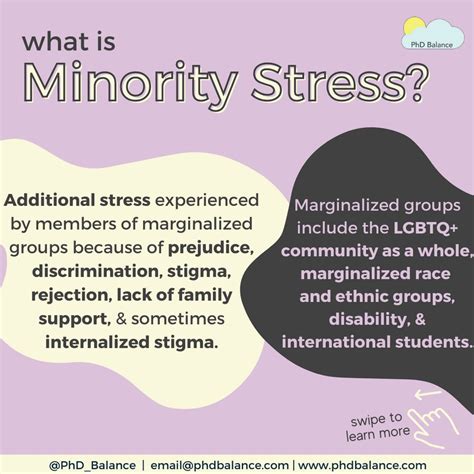Intro
Discover the complex relationship between transgenderism and mental health. Learn about the intersection of identity, stigma, and psychological well-being in the trans community. From anxiety and depression to resilience and support, explore five key facts about transgenderism and mental health, shedding light on the unique challenges and triumphs faced by trans individuals.
The relationship between transgenderism and mental health is complex and multifaceted. As a society, we are increasingly recognizing the importance of understanding and supporting the mental health needs of transgender individuals. However, there is still much to be learned and many misconceptions to be dispelled. In this article, we will explore five key facts about transgenderism and mental health, with the aim of promoting greater awareness and understanding.
Transgender individuals are at a higher risk of developing mental health issues due to societal stigma and discrimination. According to a study published in the Journal of Clinical Psychology, transgender individuals are more likely to experience depression, anxiety, and post-traumatic stress disorder (PTSD) compared to the general population. This is often a result of the chronic stress and trauma that comes with living in a society that does not accept or understand their gender identity.

Understanding the Complexity of Transgenderism and Mental Health
It is essential to recognize that being transgender is not a mental illness. The World Health Organization (WHO) and the American Psychiatric Association (APA) have both stated that being transgender is a normal variation of human experience and not a disorder. However, the stigma and discrimination that transgender individuals face can contribute to the development of mental health issues.
The Impact of Minority Stress on Transgender Mental Health
Minority stress refers to the chronic stress and anxiety that comes with being a member of a stigmatized group. For transgender individuals, this can manifest in a range of ways, including internalized transphobia, social isolation, and fear of violence or rejection. Research has shown that minority stress can have a significant impact on the mental health of transgender individuals, increasing the risk of depression, anxiety, and suicidal ideation.

The Importance of Social Support for Transgender Mental Health
Social support is a critical factor in the mental health and well-being of transgender individuals. Having a supportive network of family, friends, and community can help to mitigate the negative effects of minority stress and promote resilience. Research has shown that transgender individuals who have strong social support networks are more likely to have better mental health outcomes and are less likely to experience depression and anxiety.
The Role of Mental Health Professionals in Supporting Transgender Individuals
Mental health professionals play a vital role in supporting the mental health needs of transgender individuals. This includes providing a safe and non-judgmental space for individuals to explore their feelings and concerns, as well as offering evidence-based treatments such as cognitive-behavioral therapy (CBT) and psychodynamic therapy. Mental health professionals can also provide support and guidance for individuals who are navigating the transition process, including hormone replacement therapy (HRT) and surgery.

Reducing Stigma and Promoting Acceptance of Transgender Individuals
Reducing stigma and promoting acceptance of transgender individuals is critical for improving their mental health and well-being. This can be achieved through education and awareness-raising initiatives, as well as by promoting inclusive policies and practices in schools, workplaces, and communities. By working together to create a more accepting and inclusive society, we can help to reduce the negative effects of minority stress and promote better mental health outcomes for transgender individuals.
The Importance of Self-Care for Transgender Individuals
Self-care is essential for maintaining good mental health and well-being, particularly for transgender individuals who may be experiencing high levels of stress and anxiety. This can include activities such as exercise, meditation, and spending time in nature, as well as engaging in creative pursuits such as art, music, or writing. Self-care can also involve setting boundaries and prioritizing one's own needs, which can be particularly challenging for individuals who may be experiencing minority stress.

Conclusion: Promoting Greater Understanding and Support for Transgender Mental Health
In conclusion, the relationship between transgenderism and mental health is complex and multifaceted. By promoting greater understanding and acceptance of transgender individuals, we can help to reduce stigma and promote better mental health outcomes. This includes providing education and awareness-raising initiatives, promoting inclusive policies and practices, and supporting the development of mental health services that are tailored to the needs of transgender individuals. By working together, we can create a more inclusive and supportive society that promotes the mental health and well-being of all individuals, regardless of their gender identity.
What is the relationship between transgenderism and mental health?
+The relationship between transgenderism and mental health is complex and multifaceted. While being transgender is not a mental illness, the stigma and discrimination that transgender individuals face can contribute to the development of mental health issues such as depression, anxiety, and PTSD.
What is minority stress, and how does it affect transgender individuals?
+Minority stress refers to the chronic stress and anxiety that comes with being a member of a stigmatized group. For transgender individuals, this can manifest in a range of ways, including internalized transphobia, social isolation, and fear of violence or rejection.
How can mental health professionals support the mental health needs of transgender individuals?
+Mental health professionals can support the mental health needs of transgender individuals by providing a safe and non-judgmental space for individuals to explore their feelings and concerns, as well as offering evidence-based treatments such as CBT and psychodynamic therapy.
What can be done to reduce stigma and promote acceptance of transgender individuals?
+Reducing stigma and promoting acceptance of transgender individuals can be achieved through education and awareness-raising initiatives, as well as by promoting inclusive policies and practices in schools, workplaces, and communities.
Why is self-care important for transgender individuals?
+Self-care is essential for maintaining good mental health and well-being, particularly for transgender individuals who may be experiencing high levels of stress and anxiety. This can include activities such as exercise, meditation, and spending time in nature, as well as engaging in creative pursuits.
